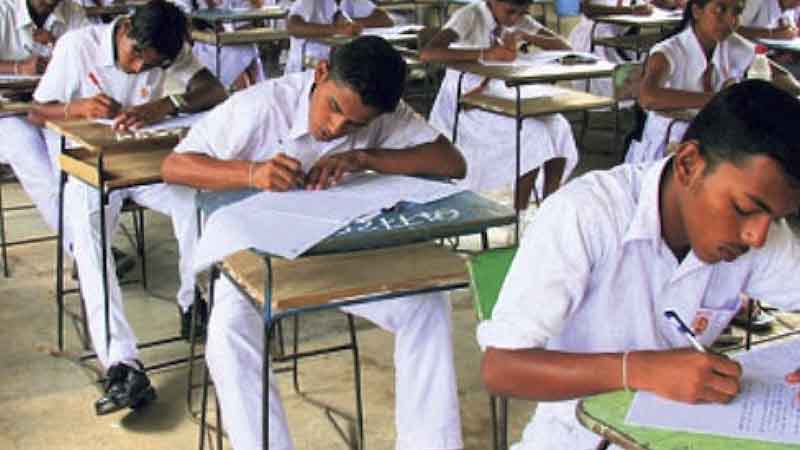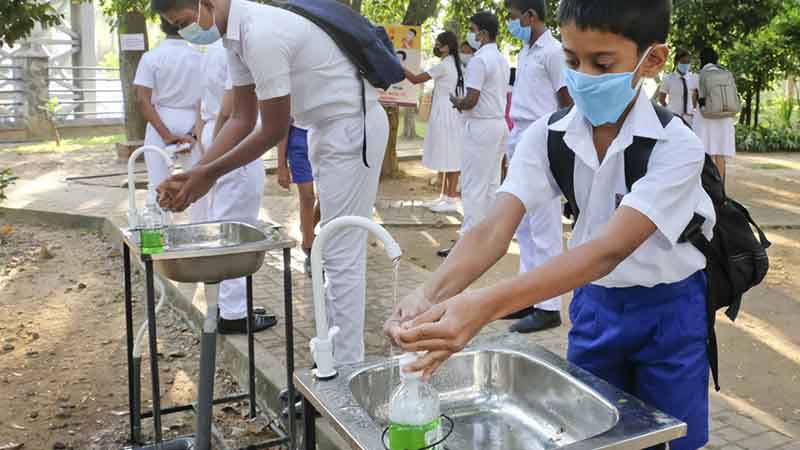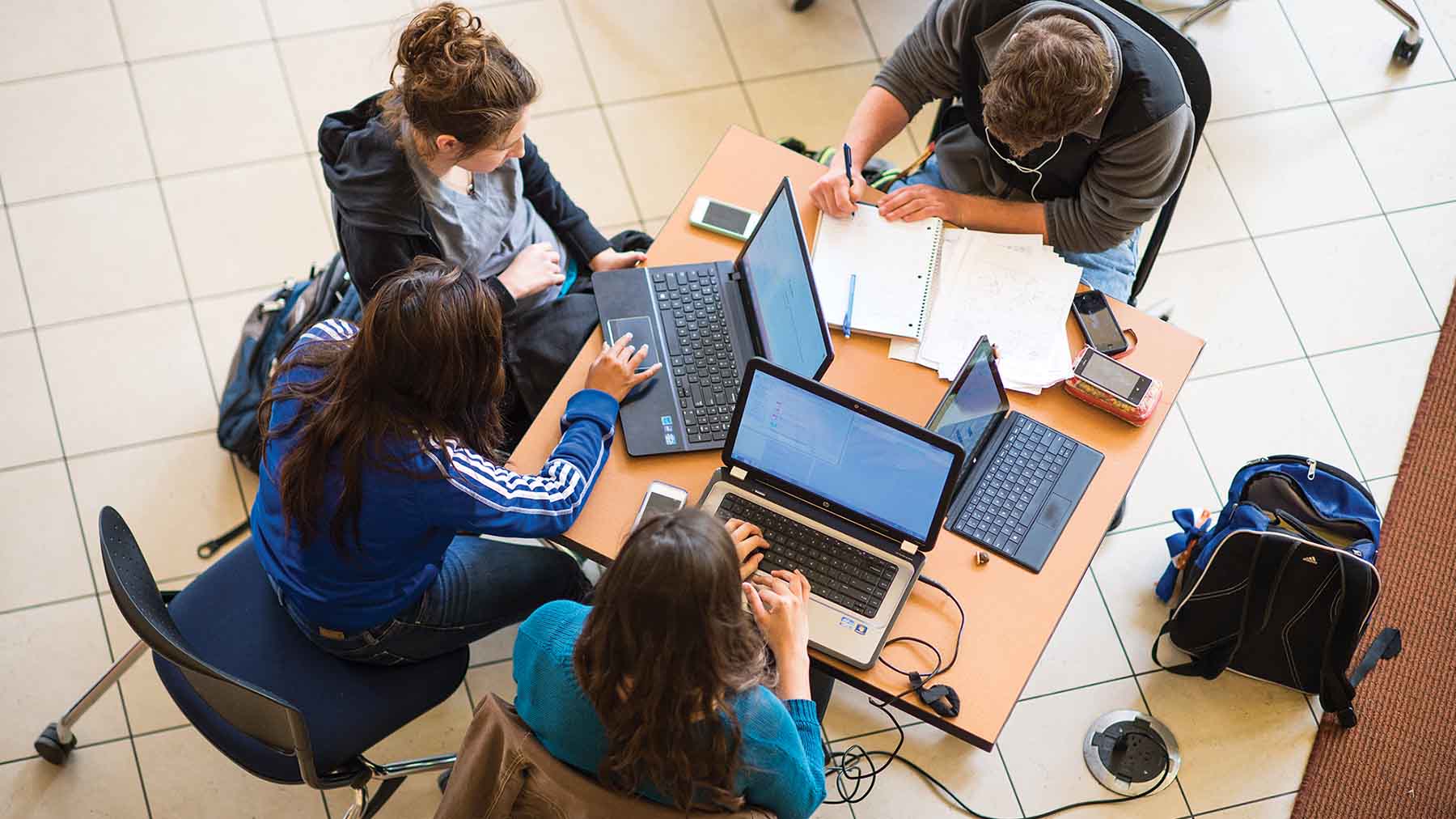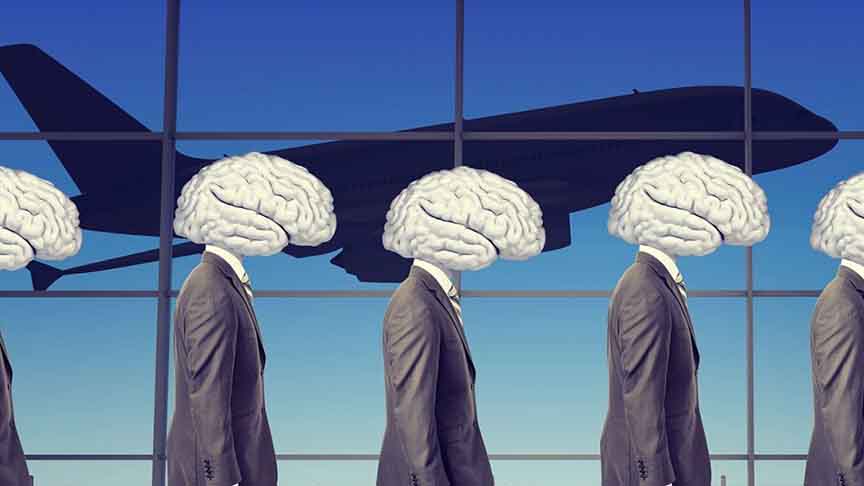Transformation of Sri Lankan Education with COVID-19
- කාලීන
- Hits: 1216
Covid-19 has had a negative impact on many sectors globally, with education being one of the most severely affected. Despite the great attempts made by many countries to provide alternate remote learning methodologies and corrective mechanisms, learning losses through COVID-19 have proven unavoidable and significant throughout the last few years.
In this third year of the pandemic, Sri Lanka is shifting from emergency actions to recovery policies. Along with reopening schools and resuming education, these include specialized support to assist students in adjusting to learning in the new normal, as well as corrective steps to compensate for lost learning.
Being one of the most vulnerable groups from COVID-19, Sri Lankan school children have been kept away from school from time to time, for nearly two and a half years, since March 2020. That was predominantly because of the global pandemic and because of the disturbances caused by the economic crisis the country is facing at the moment. It is obvious that a large number of students are having a very difficult time because of the learning loss brought on by this reduction of quality learning time. Even though the Ministry of Education repeatedly made plans to reopen schools, it was difficult to continue the educational process for a number of reasons.

However, as an immediate response to school re-opening, the National Institute of Education in Sri Lanka has prepared the Essential Learning Content (ELC) for grades from one to eleven, in partnership with the Ministry of Education and Provincial Departments of Education. These ELC plans are regarded as mandatory for each student to master in order to effectively progress to the next grade. The remainder of the usual curriculum content is considered the desirable learning content for the individual grades. Subjects like English Language, Appreciation of English Literary Texts, Geography, Civic Education, and Health and Physical Education are all part of the recovery plan for learning loss for the year 2022. The main objective of the proposed learning loss recovery program is to focus mainly on essential learning content stipulated for the school reopening programme.
Education systems in Sri Lanka require restructuring in order to be competitive on the global arena. Today's world is molded by technology. Education must prepare students for a changing world. There is a race between education and technology. If technology lags inside the school system, students will be prepared for a world of employment for which they are unprepared. Therefore, through altering education systems, inequities and disparities in some educational institutions would be eliminated.
It can be believed that the high level of literacy has a good impact on the transformation of education in Sri Lanka. Given that adult men, adult women, and youth literacy rates in Sri Lanka are all above 90%, the efforts of Sri Lanka to update curriculum and pedagogies will be successful. A focus of attention on teachers and school administrators can ensure that the pedagogy in the classroom or on the video conferencing platform addresses the problems related to education. Teachers gaining new abilities, such as those related to using educational technology and interacting with parents and other community stakeholders can ultimately result in a successful educational transformation.


During the Corona Virus outbreak, Sri Lanka experimented with online education at both schools and universities, with varying degrees of success. However, there were numerous main hurdles to the widespread adoption of online education. Not all students and teachers possessed computers, smartphones, or other devices that allowed them to participate in online classes. Furthermore, in many places, particularly the rural areas do not yet get 4G signals, and coverage is still poor in many other locations. Comprehensively addressing this digital gap through more consultations with relevant stakeholders is of utter importance.
The interruption to schooling brought on by COVID 19 has taught Sri Lanka a number of important lessons for the future. The crisis has emphasized the importance of flexible, adaptable policymaking. It is obvious that excellent teaching and learning alone are insufficient. Schools also need to focus on the welfare of both students and teachers. Additionally, it is noticeable that in Sri Lanka, having access to technology is important but insufficient, and that many teachers desperately require training in digital pedagogy. Therefore utilizing these lessons to ensure the continuity of learning while supporting quality teaching and learning for the long-term is important.
The Sri Lankan government being prepared to take all the possible initiatives, including advancing technology, distributing more funding for education, and giving teachers and students greater autonomy in order to elevate the Sri Lankan education system to a higher level is crucial. In order to represent Sri Lanka's increased levels of educational aspiration, both domestic and public financial adjustments are necessary. Accordingly, more money can be allocated to the ministry of education, and funding that will come from organizations other than the government like UNICEF, the Asian Development Bank, and the World Bank can be repurposed for initiatives of the educational institutions. Furthermore, conducting negotiations with nations that give overseas development assistance to Sri Lanka about making school finance a priority in order to increase both the quality and quantity of international assistance of education would be great.
By ensuring that every child has the resources to complete a free, equitable, and a high-quality primary and secondary education, Sri Lanka as a state can assist in achieving excellent education by the year 2030. If such necessary steps are taken by each country, a successful transformation of educational systems would be evident as a way of fulfilling the fourth aim of the United Nations Sustainable Development Goals
R. M. K. Prathibha Rajasinghe
R. M. K. Prathibha Rajasinghe
Third Year (Translation Studies)
Department of Linguistics










































